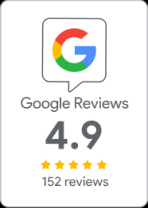Key Interview Tips
Key Interview Tips
Whether it's your first or third interview this week, proper preparation is crucial. Here's essential advice to help you get ready and polish your interview technique, easing any nerves.
Research Thoroughly:
- Investigate the company, the role, and the interviewer. Explore the company website and relevant industry websites. Check LinkedIn for company pages and information about the interviewer. You might even discover details about the person you’ll be replacing.
Highlight Relevant Skills and Qualifications:
- Identify which of your skills, experiences, and qualifications align best with the job and company. Use the job description as a guide. Be prepared to discuss them succinctly during the interview.
Know Your Route:
- Understand the exact location of the interview, including parking options and nearby facilities. If using public transport, know the train or bus schedule.
Arrive Early:
- Aim to arrive with plenty of time to spare. If traveling by train, consider catching an earlier one to account for any delays.
Stay Connected:
- Ensure your mobile phone is fully charged and have contact numbers (company, agency, etc.) handy in case of emergencies or delays.
Dress Appropriately:
- Wear smart attire, paying attention to grooming and overall appearance. Avoid extreme fashion choices.
Bring Essential Documents:
- Carry a couple of copies of your CV, relevant certificates, and qualifications. If applicable, bring evidence of your right to work in the UK.
Prepare for Questions:
- Anticipate common interview questions and practice positive, concise answers. Consider doing mock interviews out loud to build confidence.
Prepare Questions to Ask:
- Jot down questions you’d like to ask the interviewer. Having them written down ensures you won’t forget anything important.
Practice, Practice, Practice:
- Consider doing a mock interview with someone else to fine-tune your responses and boost your confidence.
The Interview
Navigating an interview can be nerve-wracking, but with the right approach, you can leave a positive impression. Here are some tips for acing the interview itself:
Relax, But Stay Professional:
- Calm your nerves but avoid being too laid back or overly confident. And yes, definitely turn off your mobile phone!
First Impressions Matter:
- Begin with a nice, firm handshake.
- Use the interviewer’s name during the conversation.
- Maintain good eye contact to convey confidence.
Open Body Language:
- Sit up straight and lean slightly forward.
- Avoid crossing your legs or folding your arms, as this can appear defensive.
Accept Hospitality:
- If offered tea, coffee, or water, at least accept the water. It shows appreciation for their hospitality.
- Taking a sip can also buy you a moment to think if faced with a challenging question.
Listen Actively and Answer Clearly:
- Pay close attention to questions and respond concisely.
- Avoid rambling or going off-topic.
- If something isn’t clear, ask the interviewer for clarification.
Stay Positive:
- Highlight the positive aspects of your previous roles.
- Be pragmatic when discussing any negatives.
- Avoid speaking negatively about past employers.
Positive Language and Body Language:
- Use upbeat language and maintain positive energy.
- Remember that nonverbal cues matter—smile, nod, and show engagement.
Think Before You Speak:
- Take a breath before answering difficult questions.
- If needed, take a sip of water to gather your thoughts.
Enjoy the Process:
- Interviews are a two-way street. You’re assessing them as much as they’re assessing you.
- Show genuine interest in the company and role.
Ask Questions:
- Inquire about any concerns they might have.
- Ask about the next steps and the timeline for decision-making.
End Gracefully:
- Shake their hand confidently.
- Thank them for their time and the opportunity to meet with them.
Evaluate Your Performance Congratulations on completing the interview! Reflecting on your performance is essential for continuous improvement. Here are some steps to consider:
What Went Well:
- Identify aspects of the interview that you believe went smoothly. Perhaps you provided clear answers, demonstrated relevant skills, or connected well with the interviewer.
Areas for Improvement:
- Be honest with yourself. What could you have done better? Did you stumble on any questions? Were there missed opportunities to display your strengths?
Learn from the Experience:
- Use this interview as a learning opportunity. Consider how you can enhance your performance next time.
- Practice answering common interview questions to build confidence.
Feedback from the Agency:
- If the interview was arranged by an agency, share your feedback with them promptly. They can also provide insights from the company’s perspective.
- Address any concerns or questions you might have.
Follow-Up Email:
- Send a thank-you email to the interviewers. Express gratitude for their time and reiterate your enthusiasm for the job and the company.
- Mention specific points from the interview that resonated with you.
Interviews are stepping stones toward your goals. Each experience contributes to your growth. Best of luck in your job search!







